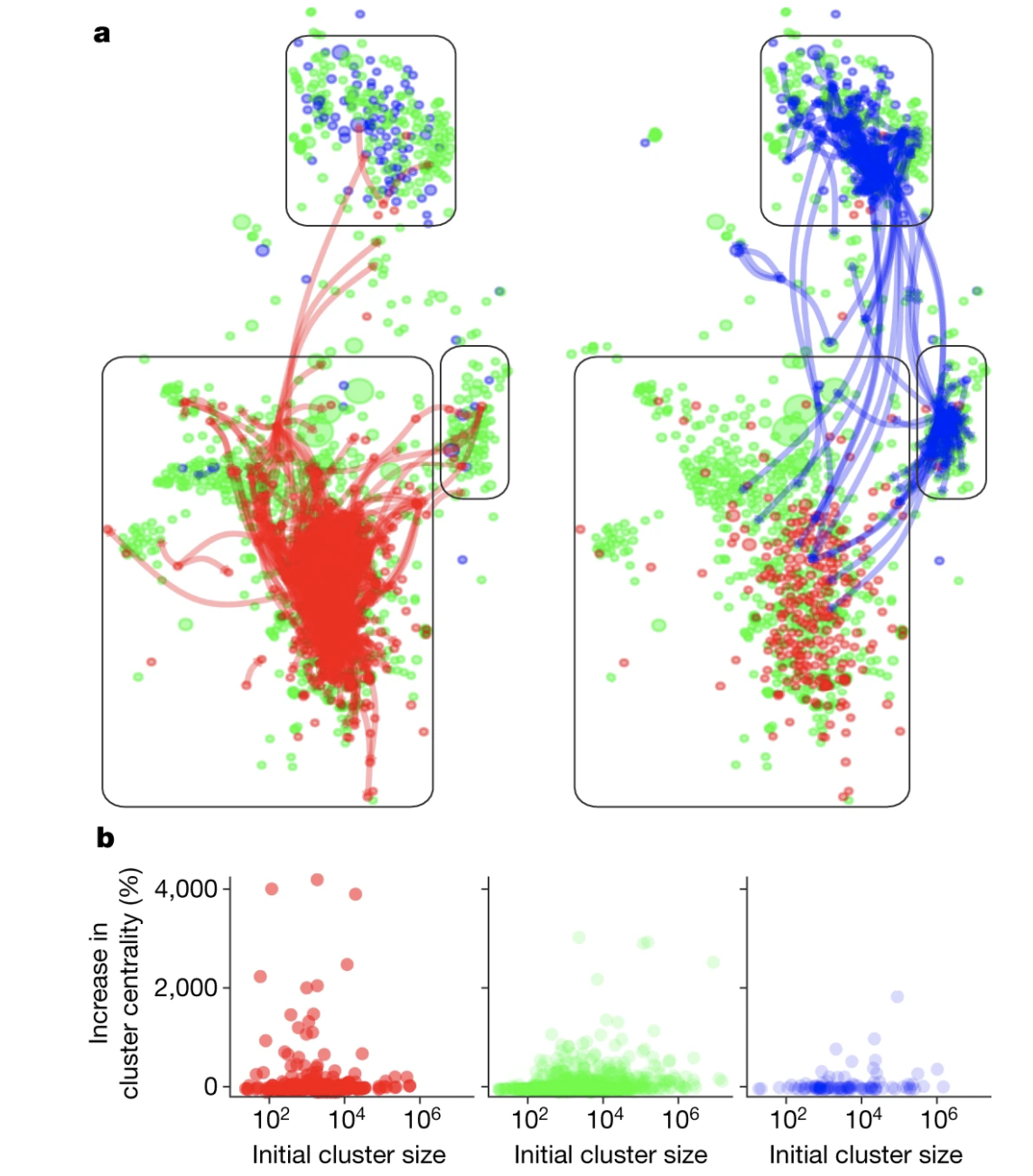
Study Shows How Misinformation Spreads Online and Fuels Distrust
A recent study by physicist and Institute for Data, Democracy, and Politics affiliate Neil Johnson explores how the views of anti-vaccine groups tend to spread more widely on social media than pro-vaccination views, increasing the chances of reaching people who are undecided on the subject. Professor Johnson’s model predicts continued growth of anti-vaccine sentiment on Facebook and other social networks, which could affect how widely a COVID-19 vaccination is embraced.
The crisis of recent weeks has seen social media companies take a more active posture toward moderating content that could have public health ramifications. Studies like Johnson’s provide an interesting view into how information moves on digital platforms and can inform what interventions might be effective and stem the tide of harmful content online.

Download the complete study (PDF): Quantifying COVID-19 content in the online health option war using machine learning.
In 2019, Knight Foundation awarded a $5 million grant to establish the Institute for Data, Democracy, and Politics at the George Washington University. The Institute’s scholars are focused on “help[ing] the public, journalists, and policymakers understand digital media’s influence on public dialogue and opinion.”
Image (top): Myth Busters by Redgirl Lee on Unsplash.

